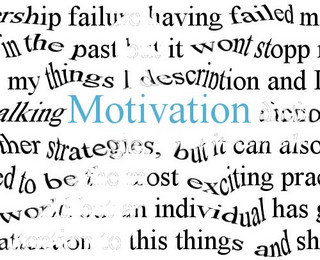Hiten Vyas's Blog, page 7
May 27, 2013
How to Deal With Rejection
When you want to make progress in any aspect of your life, be it professional or social, you will at times be rejected. We’ve all been rejected at one time or another. Our ideas at work might get rejected. Our business proposition might get turned way. We might even get rejected in our love lives.
However, rejection isn’t something to be deflated about. Below are some tips on how you deal with rejection:
Take some time to reflect
If another person rejects you about something, it’s always worth spending some time reflecting what happened, objectively. Think about what you said and consider specific incidents of how you behaved, which may have caused the other person to reject you. By doing so, you give be able to change your approach the next time, so that you’re constantly learning and improving.
Ask for feedback
If you really want to increase the amount you learn during a rejection, ask others for feedback on the reasons for the rejection. When other people give you feedback in a constructive way, it can be a very powerful confidence boost and provide vital information for next time.
Apply the feedback
Next time you take similar action, ensure you use the information from the feedback you gained, both through reflecting on yourself and the feedback you got from other people. This is important to do as you want to ensure you don’t keep making the same mistakes.
Are you sure it’s even about you?
Another way you can use to deal with rejection is to consider whether it even has anything to do with you. What other issues and priorities might the person who turned you down be dealing with, which could explain the rejection?
Channel your feelings
Rejection never feels nice. Rather than allowing yourself to remain down through negative feelings, channel these feelings into those of determination to get what you want and bounce right back.
Congratulate yourself
Remember, by wanting approval for an idea, or by asking for something, you did the brave thing. Without asking you will never get. Even if you were rejected on this occasion, at least you gave it go. Congratulate yourself for doing so.
Redirect your thoughts
It can be easy to replay the event where you were rejected over in your mind. By doing so, you can end up feeling the unhelpful feelings associated with the particular occasion all over again. Your thoughts will impact how you feel. When you catch you mind going to the rejection again, send it to other places, such as thoughts of how much you already have in your life and can be grateful for.
Resist getting angry
When you get rejected, it can be easy to get angry or upset at the person who has done the rejection. Rather than choosing to get angry, choose to remain calm instead. Unhelpful emotions directed at others means you give up your responsibility for the way you think and feel. Instead, use the rejection as an opportunity to grow and develop your own inner strength.
My friends, it’s over to you:
• What other ways can we use to deal with rejection?
• Please share you valuable thoughts, experiences and views in the comments box below.
• Please also share this post on your favourite social networks. Thank you.
Photo Credit: Steve Snodgrass
May 20, 2013
How to Be Likable
When meeting and interacting with people whether in our professional or personal life, let’s face it, we get judged. For instance, people will judge us on the way we look and how we behave. We do it with other people, too. Therefore, in order to create a good and lasting impression, use the following tips to help you present yourself in a likable way:
Cooperate with others
Your life will flow much more naturally when you cooperate with people and agree to suggestions and ideas presented to you, and build upon them by adding your own views. Not only will this help in your interactions with people, it will also enable you to increase your productivity when you’re getting tasks done at work and at home, because others will be more cooperative about your ideas and plans.
Tell people a little about yourself
When you’re having conversations with people, tell them a little about the real you. By this, I don’t mean tell anyone your personal details. However, sharing a story about yourself at the right moment that another can relate to, will do wonders in making you more likable.
Be mindful of the bragging
You may think that telling stories about your flash car or the huge amounts of money you’ve been making recently might impress people. Sure enough some people might be. However, many people will see right through this and instead of being likable, you run the risk of coming across as insecure.
Wear the right clothes
Appropriate clothes are dependent on contexts. If you’re in a professional setting then ensure you’re wearing decent business attire. If you’re in a social context then less formal clothing is fine. To be on the safe side, if you’re going into a new setting, find out all you can about the type of clothing that will be appropriate, so that you can dress accordingly.
Don’t try and be what you’re not
There are a number of characteristics you have, which when you bring to the fore, will make you charming in your own way. Use what you already have, as opposed to being something you’re not. For instance, if you’re not someone who cracks a joke every other sentence, then don’t try and be this person. At some point you will lose all energy to keep up the act and when people find out the real you, you’ll come across as unauthentic.
Be courteous
In general, be respectful of other people. As simple as this might be, remember to say “please” and “thank you” when asking and receiving. If you see someone struggling with something and know you can help, then offer to do so. Also, if you’re arriving into an environment and its morning, wish other people you see a good day, or if you’re leaving then wish people a good evening. Such simple comments can increase your sense of warmth, which other people will pick up on.
Admit when you’ve got it wrong
If you’ve made a mistake and it has impacted another person then tell the individual you’re sorry and will ensure the same won’t happen again. Being able to admit to your mistakes is the mature thing to do. Trying to lay blame or pass the responsibility onto someone else, is an easy option to take. However, it is something that a child might do, not a grown adult.
Over to you my friends:
• What other ways can we use to make ourselves more likable?
• Please share your valuable thoughts, experiences and views in the comments box below.
• Please also share this post on your favourite social networks. Thank you.
Photo Credit: CarbonNYC
May 13, 2013
How to Make Conversation
Do you find yourself in social situations where you meet a new person and are unsure of how to get into a conversation? Do you end up standing alone, feeling awkward? If so, the following tips will help you to confidently get into conversations with new people:
Smile
Before you’ve even uttered a word to a new person you want to meet, smile. Smiling will show the person you want to talk with that you are friendly and it is an excellent way to break the ice.
Be fun
Related to using your smile as in the tip above, is adopting an attitude of being fun. Doing so will make you feel happy and your positive energy will project onto the person you want to converse with.
Have a good introduction
When you go to introduce yourself to a new person, give the individual a handshake and say a simple “hi” or “hello”, followed by “it’s nice to meet you” and then tell, the individual your name.
Find areas of mutual interest
If the person you’re in a conversation with tells you about something, which you also have an interest in, or have an opinion about, then share your knowledge on the subject. This will help you to make a connection with the other person.
Let the other person talk
It’s wonderful if you get into a conversation with someone, where you both connect on an area. Naturally you’re excited to talk about your view on the topic. However, ensure you let the other person do a lot of the talking as well. A conversation is a two-way activity.
Interject to keep the conversation going
When you do talk, a technique you can use to continue the conversation, is to interject with a few words. For instance, if the person you’re talking with tells you something, you could say “I see”, or “I get it” and then ask a further question to get more clarification.
Use eye contact
When you’re talking with another person, use your eye contact with the individual. This will help to maintain the person’s attention on the conversation. Use eye contact gently without staring. It’s perfectly fine to look away occasionally, before looking at the person again.
Show interest
Go into a conversation with a genuine interest about the person you want to talk with. Ask questions which will allow the person to open up. This will help you to understand the individual more. You can do this by asking open-ended questions rather than those which require one word answers, such as “yes” and “no”.
Paraphrase
Another great thing you can do is to repeat back and paraphrase what the person has said to you. This will help you to clarify that you truly understood what the person has said, and demonstrate to the other person that you’re listening properly.
Use your body language
When you do add something to the conversation, use your hands to gesture some of your points. This will help you to express yourself more, and you will seem more interesting to the other person.
My friends, it’s over to you:
• What other ways can we use to make our conversations with new people interesting and meaningful?
• Please share your valuable views, experiences and thoughts in the comments box below.
• Please also share this post on your favourite social networks. Thank you.
Photo Credit: ktylerconk
May 6, 2013
Negative Thoughts – How to Change Them
We as humans have the amazing ability to think and imagine. Unfortunately, a lot of the time we entertain negative thoughts that hinder us in life, rather than help us to move forward. Are you currently experiencing such thoughts? If so, below are some tips on how you can change them:
Challenging them
Negative thoughts usually are habits you’ve got into. Things happen in the outside world and you respond with certain thinking patterns. Similarly, you can have unhelpful thoughts in your mind and other negative thoughts in response to those. You can challenge these responses by asking yourself whether you have to respond to a particular situation with a negative thought. What would happen if instead, you used your power to choose your response, and chose an empowering thought to respond with?
Cease judging negative thoughts
When you have a negative thought, it gains power over you when you identify with it. If you label a thought as being painful or scary then it becomes so. By just allowing the thought to arise and bravely watching it from a distance, it loses its power over you.
Replace negative thoughts with positive ones
When you have a negative thought, you can quickly replace it for a positive one. This is a habit you can create. For instance, let’s say you have a meeting at work and you have a thought about not being confident during it. You can quickly switch this thought for one where you were confident in a particular situation. It might be of a time during another meeting, or it could be in another context. This will help to reinforce that there have been occasions in your life, when you experienced the very same emotion you currently think you will be unable to have.
Surround yourself with the right people
Negative people usually have negative thoughts, which then manifest in their behaviours. By hanging around with such people, their behaviour will rub off on you and impact your mood, along with your thoughts. Surround yourself with people who think well and are actually going places in life. It will help in changing your thoughts and attitudes, for the better.
Be grateful for what you have
Get in tune with what you already have. You’re living. You have a family, friends, work, clothes, and food and so on. These are things to be grateful of. Many people don’t have what you have. By being grateful for what you have, you will entertain thoughts of gratitude.
Apply an adult frame to the thought
Another technique you can use is to observe a negative thought from the position of being a resourceful and mature adult. Negative thoughts can be full or fear, worry or even helplessness. Now, when you look at such thoughts from the perspective of a fully grown adult, which you are, and as someone who has the ability to solve problems, how does it change the unhelpful thought?
Learn how to stop thinking so much
You can also learn the ability to stop thinking as much as you currently do. You can do this through meditation and focusing your attention on something else, such as your breathing so that you mind is occupied with doing something else, rather than thinking.
My friends, it’s over to you:
• What other ways can we use to change negative thoughts we may have?
• Please share your valuable views, experiences and thoughts in the comments box below.
• Please also share this post on your favourite social networks. Thank you.
Photo Credit: Sam Howzit
April 29, 2013
Making Mistakes in Life is Really Good
Do you currently believe you can never make mistakes in life, or get anything wrong? Maybe you don’t. However, if you do, the points in this post will be relevant to you. Below are some reasons why mistakes are actually good for you:
You’re still entitled to make mistakes
Children make mistakes all the time. Do you ever tell kids off for making mistakes? Of course you don’t. So, why are you so hard on yourself when you make mistakes? Just because you’re an adult, it doesn’t mean you can’t get anything wrong. In fact, as an adult it is difficult to make progress in any aspect of life, unless you’re prepared to make mistakes. Remember, as an adult, you’re still allowed to make mistakes.
Mistakes allow you to learn
Doing something you’ve never done before and not getting the result you wanted doesn’t mean you’ve failed. It’s an opportunity to analyse what you did in the process, and consider what worked well in particular and what didn’t. In the future, you can do more of what worked and do something else to replace that which didn’t.
Feel good factor from doing
Rather than holding back on doing what you want out of fear of not doing it well, or getting it wrong, it’s better to give it go. By trying, you will automatically feel good and your confidence and self-esteem will rise.
Increase your strength of character
Doing something well and telling the world about it is easy. After all, you might get praise and people telling you how did a great job. However, admitting your mistakes isn’t very easy, because now you have to admit that what you did, didn’t work out. It takes strength of character to do so, and people respect those who are man or woman enough to admit their mistakes.
Increase your resilience
If you’re currently finding it hard to make mistakes, it will take some time for you to get used to. However, as you begin to truly understand and experience that mistakes will always happen, you will over time, be able to shrug off mistakes more quickly, until you reach a point, where you won’t flinch when you get something wrong. You will have developed the resilience to bounce back and continue with the journey.
Increase your ability to forgive
When you make mistakes and are hard on yourself, you experience the suffering it causes inside you. You tell yourself harsh words about your mistakes. Instead, when you give yourself permission to make mistakes, you appreciate that humans are fallible in nature. We get things wrong all the time. You learn to forgive yourself. Through this, you also learn not to judge other people when they don’t get things right.
Increase your ability to relate better
Through forgiving yourself for making mistakes and showing compassion when others do, you will create a more healthy environment when you interact with people in your personal and professional life. You will not be afraid to make mistakes in front of others. Likewise, others will feel the same about making mistakes when they’re around you. This helps to create more trust.
My friends, it’s over to you:
• What are your thoughts on making mistakes? Do you we need to make mistakes, or do we need to avoid them?
• What else do we learn when we make mistakes?
• Please share your valuable views, thoughts and opinions in the comments box below.
• Please also share this post on your favourite social networks. Thank you.
April 22, 2013
How to Overcome Fear

We can all get fearful at times. We can be fearful of heights. We can be scared of water. The fear could be of public speaking, or of talking with authority figures. It could be a fear of many other things unique to each of us. Below are some tips on how you can overcome fears in your life.
Welcome the fear
If you’re fearful about something, then you will resist the undesirable feelings the fear creates inside you. Rather than resist your fear, welcome it in. Open your internal door and allow it in, noticing that the fear is trying to tell you something. It is up to you to decide whether to take its message on board, or not.
Challenge your fear
Fear can be real. For instance if someone is about to physically attack you, you have a real reason to get be fearful. However most of the time, everyday fears are usually worry, about what might happen. For instance, you worry about voicing your opinion because people might disapprove. In reality, no one has disapproved about anything. You have created a false fear of something, which hasn’t even happened. Next time you become frightful of something, ask yourself what are the chances of this really happening?
Change what you say to yourself
Underlying your fear, there will usually be unconscious words you say to yourself. For instance, if you analyse what you say to yourself, you might discover a lot of “I can’t” and “I won’t be able to” and “I could never do” type of statements. This type of language helps to lock the fear in and solidifies it. Just a slight shift in what you say to yourself, will allow you to experience that you can talk to yourself positively, which will help you to create a base to deal with your fear.
Face the fear
In order to overcome your fear, you need to confront it. You can do a lot of internal work by changing your attitude towards your fear and changing what you say to yourself. However, this needs to be supported by direct confrontation. For instance, if social situations are your fearful activity, you need to muster up the courage to go into the very such situations and be present in them. Keep doing this again and again until you become desensitised to the fear.
Break the fearful activity down
A fearful activity seems more difficult than it is because you tend to focus on the end goal and the end goal looks very difficult. For instance if you fear you will fail an exam, you just focus on the end point, which is getting a low score. However, there are a number of steps you can take in the process of preparing for your exams, so that you succeed.
In reality, such a fearful activity is just like any other process you would be undertaking. You can reduce its size by breaking it down into small steps. Each step achieved is progress towards overcoming your fear. You don’t need to even think about the next step until you have completed the one at hand and have rewarded yourself for reaching it.
My friends, it’s over to you:
• What other ways can we use to overcome fear?
• Please share your valuable views, experiences and thoughts in the comments box below.
• Please also share this post on your favourite social networks.
Photo Credit: return the sun
April 15, 2013
Vipassana Meditation and its Benefits
Vipassana meditation is an ancient technique, which the Buddha practiced on his journey to enlightenment.
The objects of Vipassana meditation are thoughts, emotions and sensations throughout the body. When practiced with persistence, it can impact your life in a number of positive ways. The key benefits of Vipassana meditation are as follows:
Development of wisdom
A unique effect of Vipassana is it enables you to understand and experience the Law of Impermanence in action. This law states that everything is changing. Nothing lasts. This is true in our outer world. For instance, you buy a piece of clothing. Your wear it and wash it over again. All the time it is disintegrating.
The Law of Impermanence also applies to our inner world and our thoughts, feelings and sensations, which emerge, stay for a while and then pass away. By meditating on the arising and passing away of mind-body phenomena, one develops true wisdom of what is going on inside them.
Witness how suffering is caused
Related to the point above developing wisdom, by practicing Vipassana meditation, you also experience how you are responsible for your own suffering. When you become attached to your thoughts, emotions and feelings, you suffer. For instance if you have an unpleasant thought, you will resist it and become uncomfortable. On the other hand, if you have a pleasant thought, you will enjoy it. However, it won’t last for long. As soon as it passes, there is potential for you to suffer again as you may become frustrated.
Non-attachment
Through practice of Vipassana, you learnt to develop non-attachment to your thoughts, emotions and sensations. You know that whatever arises in you will pass away, anyway. By understand and experiencing this, you will become less and less attached to your mind-body phenomena. You will learn how to stop creating a false Self, which happens through attachment. By meditating on non-attachment, over time you will experience reduced stress and become less agitated.
More present moment living
By observing your thoughts, emotions and sensations objectively, you are living in the present moment, as you are not getting caught up in the contents of your mind-body phenomena. You’re just a detached observer. This is true living in the moment.
How to do Vipassana meditation
When first starting out with Vipassana, aim to meditate for 20-30 minutes a day in one sitting. A basic outline for Vipassana meditation in the S.N. Goenka style is as follows.
1. Sit in a quiet place, cross-legged on a meditation cushion or a pillow. If it’s too uncomfortable to sit like this, you can also sit upright on a chair. Close your eyes.
2. Starting at the top of your head in the centre of it, observe sensations arising and passing away, objectively, without getting attached to them. These sensations could be prickling, tickling, heat or cold spots. If it’s a pleasant sensation, just observe it without labelling it as being pleasant. If it’s an unpleasant one, do the same. Don’t react to it. Just observe it. Continue observing such sensations working your way down all over your body, your arms, chest, abdomen and your legs, until you reach the tips of your toes. Once you reach your toes, go back the other way from your toes to your head, observing sensations, arising and passing away.
3. As you’re observing sensations, if a thought or emotion arises in you, just observe it objectively, without becoming attached to it. For instance, if a pleasant emotion arises, don’t become attached it. On the other hand, if it is an unpleasant emotion arises, just observe it objectively. Maintain complete balance of your mind.
My friends, it’s over to you:
• Do you practice Vipassana meditation? If so, please share your experiences with the technique.
• Do you practice any other forms of meditation? If so, what are your experiences with them?
• Please also share this post on your favourite social networks.
April 8, 2013
How to Motivate Yourself

Creating change in your life is fascinating. It can be a roller coaster journey and you will experience multiple emotions during the ride. It can be fun, daunting and exciting all at the same time.
However, you need to be able to create enough motivation in the first place to actually create change. This could be motivation to take the initial step. It could be motivation to continue once you’re already on the path. Below are some tips on how you can motivate yourself:
Remember you have nothing to lose
A major barrier you can face to creating change is fear. You may worry that you don’t have it in you to create the change you want to see in your life. You might fear that you will fail. If these instances, remember at a fundamental level you have nothing to lose.
By not doing anything you will remain where you are. By at least doing something, you give rise to the opportunity for something new to happen in your life.
Create goals
A sure way to breed a lack of motivation is not having spent enough time creating plans for your change. Some type of goal making is essential to help you be motivated. A mixture of writing down your goals, combined with visualising what it will be like for you and how you will have changed, when you have achieved your goals usually works best.
Get some help
Creating properly set goals will help. What will help even more is having someone like a mentor, friend, or family member to hold you accountable for your actions. For this you will need to tell someone you trust about the change you want to create. You can then report to to this individual when you have carried out certain actions you said you would. This will help to prevent you from slacking.
Increase your confidence
The point about confidence is an interesting one. Confidence is created initially through you taking action and developing evidence of your experiences. The more confident you become, this in turn will increase your motivation to make even more progress.
Use positive affirmations
Are you telling yourself all the things you can’t do and how you will never succeed? Instead, say the opposite and repeat to yourself that you are confident, or assertive, or attractive, or can have great relationships, or whatever you say you can’t be. The right words said to yourself in the correct way can do wonders for your motivation.
Remind yourself of what you value
You want to change because it is important to you. It is valuable. If you know what you goal is, but are still finding it hard to motivate yourself, remind yourself of why you want to change in the first place.
Remember what you will become when you have changed. Consider again, what you will have achieved and how it will put you into a far greater position to where you are now.
My friends, it’s over to you?
• What other ways can you think of to help us increase our motivation?
• Please share your valuable thoughts and experiences in the comments box below.
• Please also share this post on your favourite social networks.
Photo Credit: http://www.planetofsuccess.com/blog/
April 2, 2013
Leadership Qualities and How to Develop Them
Have you ever dreamt of leading?
Perhaps it’s leading a business, or a charity group, or leading the organisation of an event. The good news is you can. Leaders are made and not born. In order to become a leader, there are some distinct leadership qualities that you need and which you can develop:
Ability to inspire
Leadership begins with your vision of the world you want to see. You will also need to share your vision with other people including your followers, your employees, team and partners in such a way that they are inspired to become a part of what you are doing.
You can do this by ensuring what you say and what you do demonstrates passion, professionalism, courage and respect for others, so that your people are inspired to believe in your values and want to model and emulate you.
Solution oriented
When a problem does occur as it will in an endeavour, a true leader will never dwell on the problem and move straight into finding a solution.
The way you can do this is to have an attitude that welcomes problems, expect them to happen and switch your mind to problem solving, so that you’re constantly looking for answers.
Knows when to lead and when not to
Being able to pass over leadership to members of your team and your partners when it is appropriate to do so is an important quality of a decent leader. This means trusting your people and knowing when a person is in a position where he/she can take on the responsibility you want to pass on, or whether the individual is still at a point where he/she needs you to lead them.
You can get better at this through spending time with your people, finding out what they enjoy doing and what activities they are resistant about. You can also determine their level of confidence by observing their reactions to your requests.
Being committed
As a leader you need your vision to be super strong in your mind and through your actions. By being committed to your cause, your followers will also see your commitment and you will gain trust from them. You can do this by working hard yourself and alongside your followers.
Being committed also means honouring your promises. If you have told a follower or a customer you will personally do something then do it. Your integrity will increase in the eyes of your followers.
Give back
Leadership isn’t a one way thing, where you get people to do for you and you never do anything in return. If you want to be a leader that really makes a change, you need to make a real difference in the lives of others. This will attract people to your cause and vision.
You can do this by getting involved in community projects, mentoring people in less fortunate positions and leading free workshops on areas of interest to people in your area.
Friends, it’s over to you:
What other qualities do you think make a leader?
What would we have to do to develop such qualities?
Please share your valuable views, experiences and thoughts in the comments box below.
Please also share this post on your favourite social networks.
My new eBook entitled ‘Lessons in Unassuming Leadership’ is out
If you consider yourself to be an unassuming, introverted or reserved person and you have dreams of leading, yet find you’re being held back, you might want to check out my latest eBook entitled ‘Lessons in Unassuming Leadership’.
It will teach you how to use your personality characteristics as sources of power to help you lead effectively. You can purchase the book from the Amazon Kindle Store and is also available as a PDF download.
March 28, 2013
Successful and Happy: Achieving the Right Work and Life Balance

Please welcome Carlo Pandian who has written this guest post.
When you look at lists of the richest people in the UK one important factor stands out. The majority of people on the list have worked hard to earn their money. Often they have come from quite humble beginnings and through their own talents and dedication have transformed themselves into wealthy and powerful individuals.
Many of the richest people in the world have achieved their successful positions through hard work and single-minded ambition. This has often been at the expensive of their personal lives and many wealthy individuals have had well-documented problems including painful divorces and messy scandals.
Is it ever possible then to become successful in business and still achieve a healthy personal life?
What is a Healthy Work and Life Balance?
The creation of wealth for wealth’s sake offers little chance for a fulfilling life. Money can buy material things but it cannot alone provide that inner sense of peace and contentment which is essential for you to lead a happy and healthy life. However, money can be a path to happiness in that it can offer you opportunities to follow your passions and interests and support your loved ones.
Yet if you work solely for the accumulation of money without considering other physical, mental and spiritual needs then this can lead to a shallow one-dimensional life. Achieving the right work/life balance is about working hard, reaching your goals and also finding time to follow your passions and interests and sharing your life with family and friends.
Health is also important to happiness so don’t forget to look after yourself. A regular health assessment at the NHS; or at private clinics such as Blossoms Healthcare; is essential to pick up any problems early on and ensure you enjoy good health.
Doctors from the world-famous Mayo Clinic; advise a lot of important patients on achieving a healthy and balanced work lifestyle. They advocate the need to continually assess your priorities in life. This will help you to make positive changes that reflect your on-going business and personal needs.
Has Anyone Got it Right?
Looking at the biographies available it is clear that several big-name entrepreneurs do seem to have achieved a healthy work/life balance. These high profile businessmen and women have managed to succeed both in their professional and personal lives. Names on this list include UK business powerhouse Sir Richard Branson, computer mogul Bill Gates and Facebook sensation Mark Zuckerberg.
If we look at Sir Richard Branson’s life in more detail we can see just how he has managed to achieve a successful work/life balance:
. Sir Richard Branson is well-known for his frugal living. Although he made his first million by the age of 25 years his feet have remained firmly on the ground.
. This seems to stem from his modest up-bringing in a typical middle class English family. Money was tight in his childhood and his parents worked hard and made sacrifices to support the family.
. From these experiences Branson has maintained a healthy respect for money his whole life and deplores a wasteful, overly extravagant lifestyle.
. Branson has stated that this idea of owning possessions as a pure luxury (that don’t bring in any money) is something he would ‘be embarrassed about’.
. Although he does own a number of luxurious properties around the world they are nearly all available for rent or lease, thereby earning him money when he is not using them.
. Branson does use his money however to invest in things he is really passionate about. This includes his ballooning company that although has never made him a profit has afforded him years of enjoyment.
. Investing in his personal passions is a key way in which Branson has achieved a good work/life balance.
. His private retreat Necker Island (also available to rent when the family is not in residence) is another key way of balancing his responsibilities with work and family.
. This is where Branson goes to get away from his high profile life and get back down to the ground.
. Branson has stated that this island is his ‘escape’ and if one day he had to get rid of everything else he owned; this island would be the one thing he would keep.
. Sir Richard Branson shows that you can achieve success in both your professional and personal life as long as you keep focused on those things that are really important to you.
Over to You:
Is it possible to achieve the right work and life balance?
What methods do you use?
Please share your valuable view, experiences in comments box below.
Please also share this post on your favourite social and professional networks
About the author:
Carlo Pandian is an Organisational Development graduate at The University of London interested in occupational health, start-ups and technology. When he’s not online, Carlo loves cooking fancy meals and foraging wild edible plants in the countryside.
Hiten Vyas's Blog
- Hiten Vyas's profile
- 7 followers









